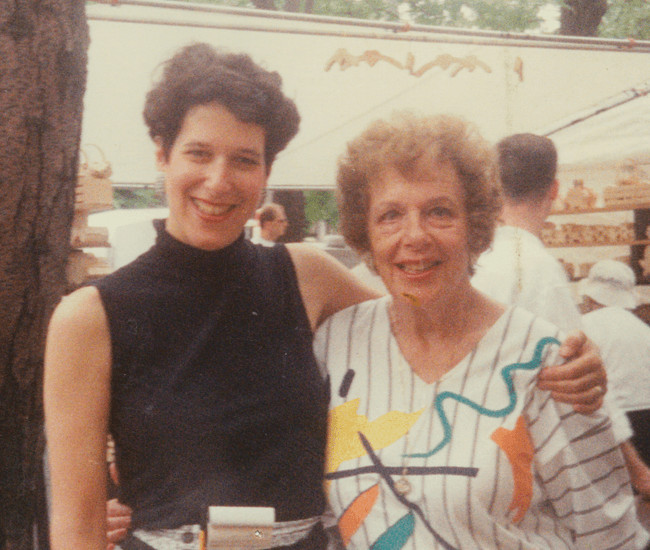As a young adult, I spent more time than most pondering the selection of Mother’s Day greetings at my local stationery store. I pored over the message inside each card to find something, how shall I say, accurate?
I balked at the prose inside one that said, “Mom, you’ve always been there for me with acceptance and support.” That may have felt true when I was small and obedient, but once I strayed from the house rules, those loving attributes vanished. Bringing a Catholic boyfriend to our Jewish home my junior year in college was met with rejection and shame. Would a Hallmark Mother set aside her religious preference in favor of her daughter’s happiness? Equally painful was how ungrateful we may feel for not embracing our mother’s values.
“You put others’ needs first” is a sentiment that also faded with age. My smart, attractive and energetic mother played her role well—preparing family meals, arranging doctor’s appointments, carpooling us to clubs and activities—until I reached adolescence. But, as would later be revealed, her own childhood traumas emerged and diminished her ability to fill anyone’s needs but her own. Do we keep celebrating what once was and ignore what is? Who gets to define the characteristics of a good mother? Or a good daughter?
I have always felt that the greeting card industry presents unattainable and idealized versions of motherhood that frustrate and repel buyers. It’s always been lose-lose for me at the card shop. Year after year we are reminded that on Mother’s Day, to be a good child, you should express loving thoughts to the woman who brought you into this world. That’ll be $5.75, thank you very much. I’m sorry that there’s a day on the calendar to encourage this charade.
I didn’t always feel this way. As a Boomer who grew up watching “Ozzie and Harriet,” “Leave it to Beaver” and “Father Knows Best,” the model for the 1950s/60s mother was a perfectly-coiffed woman who wore a shirtwaist dress, an apron, and a smile. She chuckled at her offspring’s mishaps and deferred to her all-knowing husband. My mother had her hair done every week at Miss May’s beauty parlor, but she was the presiding parent since my father commuted from our suburban home into New York City six days a week. He believed that contributing his earnings to the household fulfilled his paternal obligation. Mom may have blossomed as a wife and mother if she’d had more than monetary support, but from my perspective, she withered and fell short of the commercial norm.
I was the sitcom child: obedient, cooperative, eager to please. Choosing a card back then was easy. My mother wasn’t as tidy as June Cleaver or as serene as Margaret Anderson, but she was in control when we children were small, and we behaved as directed and I loved her with all my might. I got my creative spirit from my mother. She was an entrepreneur before women were empowered to start their own businesses. Her love of theatre lives deeply in me today.
It wasn’t until I was in my 30s and had had some therapy myself that it registered in my head and heart that her erratic behavior was beyond her control. She was ultimately diagnosed, at age 76 after her first of three nervous breakdowns, as having episodes of mania and depression. I’d grown up with an undiagnosed but symptomatic mother.
My mother struggled to let go of her authority as I grew, overstepping her role and denying me mine. When I was 17, my mother called the admissions department at Mount Holyoke College to be sure my wait-listed status would get special consideration. I believe she feared that I was too afraid to take on that responsibility myself and rather than let the opportunity go by, she took charge. I was eventually accepted, for which I will always be thankful. But, encouraging me to make that call and supporting me through the process would have been my definition of good parenting. Instead, it was a disservice to me as I remained childlike and resentful when others didn’t take care of my needs. Until I became a mother and began to figure these things out on my own.
As I grew into my middle age years—30s, 40s and 50s—I took assertiveness training courses, went to therapy, and ultimately 12-Step recovery for adult children to address the conflicts with my mother. I practiced compassion, forgiveness and made amends for my part of our battles with varying degrees of success. One counselor summed it up the best, “You can’t have a healthy relationship with an unhealthy person.” It didn’t make things better, but it did help me understand the futility of trying.
I am most grateful to have been born, given the gifts I was given by my mother, and for all that she was able to do for me. Sentimentalizing this in a few typeset words diminishes that impact. If we treated each other with mutual love and respect daily, this artificial holiday might be banished.
Mother/daughter relationships can be messy as mine was. I never found the right card, but I did embrace my mother with the love and respect she deserved at the end of her life. I climbed onto her hospital bed when she was in a coma shortly before she died. I laid down next to her. I told her that I loved her, I forgave her, and I thanked her.
No printed card could convey that message.




